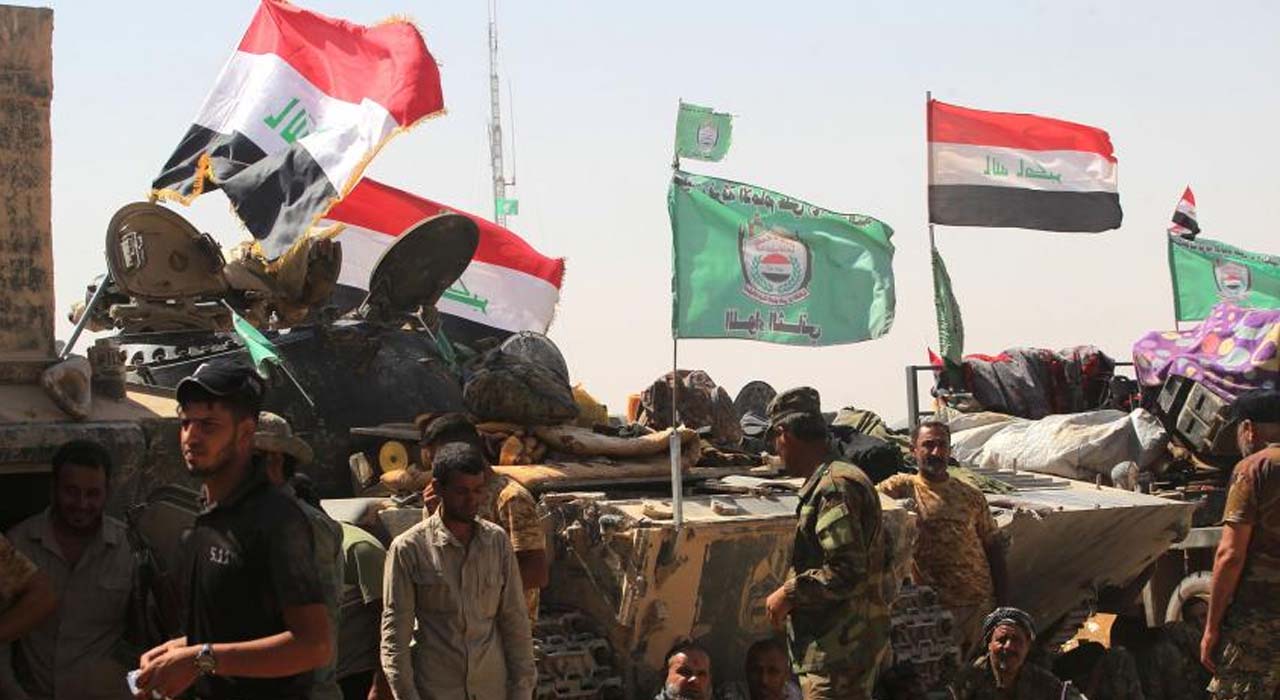
Saman Shali
Editor
Can the Iraqi Government control Iranian proxies?
Handling Iranian proxies in Iraq is a complex and challenging task that requires a multifaceted approach.

Handling Iranian proxies in Iraq is a complex and challenging task that requires a multifaceted approach. These proxies are not within the Iraqi defense system; they create significant problems for the Government and will not follow the orders of the Commander-in-Chief of the Armed Forces. The Iraqi Government can consider several strategies to address this issue to control them:
1. Strengthen National Institutions:
Build solid and inclusive national institutions that can provide security, justice, and public services to all citizens, regardless of their sectarian or ethnic affiliations.
Strengthening the Iraqi armed forces and security apparatus will be crucial to reducing reliance on militias.
2. Promote National Reconciliation:
Since 2003, the sectarian tensions have not been addressed to control and play down them; on the contrary, they have become a national issue, and a conference at this time is critical to national unity in fighting terrorism.
Foster a spirit of national reconciliation to address underlying sectarian tensions and grievances. National reconciliation could involve inclusive dialogue processes, truth and reconciliation commissions, and efforts to bridge community divides.
3. Political Engagement:
The interests of political parties in Iraq differ due to their affiliation with regional countries rather than Iraq. The urgent need to get these parties away from the interests of regional countries requires genuine efforts, pressure, and true engagement from the Iraqi people.
Truthfully, the engagement of political factions and parties to address their concerns and promote a more inclusive political environment. Encourage all groups to participate in the political process within the framework of the Iraqi state.
4. International Support:
Seek international support and cooperation to address the issue of Iranian proxies. Collaborate with regional and international partners to find diplomatic solutions and discourage external interference in Iraq's internal affairs.
The situation could pose challenges for diplomatic efforts to address Iraqi and regional conflicts. Escalation might make it more difficult for international actors to find peaceful and diplomatic solutions to ongoing disputes and proxy threats to Iraq's sovereignty.
5. Counter Radicalization and Extremism:
The division between political parties on how to address these proxies led to encouraging these proxies to disobey the Government, creating higher tension among the Iraqis. These political parties must choose between their loyalty to Iraq or others.
Implement programs to counter radicalization and extremism. Address the socio-economic factors that contribute to the recruitment of individuals into militias. Invest in education, community development, and job opportunities to provide alternatives to joining armed groups.
6. Security Sector Reform:
The Government must enact a law to control uncontrolled weapons, especially in the hands of tribes and civilians who have different affiliations and loyalty, and strictly punish anyone who violates the law.
Undertake comprehensive security sector reform to ensure security forces are professional, accountable, and representative of the country's diversity. This diversity may involve restructuring and retraining security forces to handle internal security challenges effectively.
7. Legal Framework and Accountability:
Lawlessness seems to be the daily norm in Iraqis' lives due to the absence of a law where it applies to some and not to others, and this encourages some groups to disobey the Government authorities.
Strengthen the legal framework to hold individuals accountable for human rights abuses and crimes militias commit. Ensure that the rule of law is applied uniformly across all groups.
8. Dialogue with Iran:
These proxies' loyalties belong to Iran without any question; they train and give them weapons to carry missions to deepen the interests of Iran in Iraq and the region. These groups are out of control of the Iraqi defense ministry.
Engage in diplomatic dialogue with Iran to address concerns and find common ground. Encourage regional cooperation to promote stability and security and not interfere with each other's internal issues.
9. Community Engagement:
Work at the community level to build trust and understanding. Engage with local leaders and communities to address their needs and concerns, reducing the appeal of militias as alternative providers of security or services.
A lack of trust between authorities and the public contributes significantly to communities' inability to keep the country safe and work closely with the security forces. There is an urgent need for the Government to restore that trust by pledging allegiance to Iraq, not to other countries, and by having trustworthy security forces in place to protect the Iraqi people.
10. Disarmament and Demobilization:
The disarmament of these proxies and militias must become the ultimate priority of this Government due to their dangers to society and the future of Iraq.
Develop and implement programs for the disarmament and demobilization of militias. Offer incentives for individuals to leave armed groups and reintegrate into society.
Implementing these strategies will likely require time, patience, and sustained effort from all the parties in the Government to be involved in reaching national unity. Moreover, the success of these initiatives may depend on the cooperation of various domestic and international stakeholders to bring stability to Iraq and the region in their fight against terrorists.
Disclaimer: The views and opinions expressed in this article are those of the author and do not explicitly and/or necessarily reflect the views and opinions of Kurdistan 24.